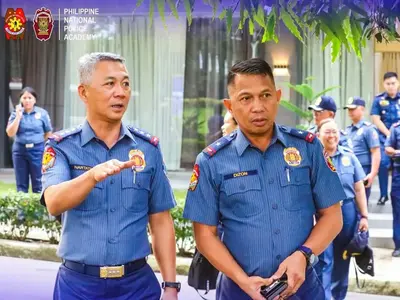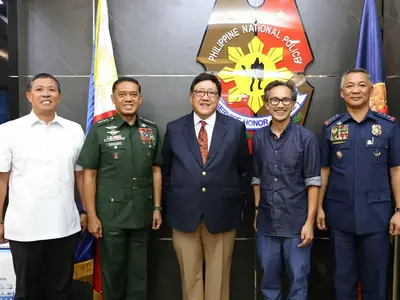
By Jun Burgos
AS August 30 approaches, so does a commemorative marker heavier than ceremony. National Press Freedom Day — signed into law via Republic Act 11699 by President Rodrigo Duterte on April 13, 2022 — reminds us of Marcelo H. del Pilar, born on August 30, 1850, the valiant “Plaridel,” and the enduring battle for truth amid tyranny.
It directs government offices and schools to recognize journalism’s public service and protect its stewards.
But commemorations can ring hollow when reality tells a different story. For Philippine media workers, the fight for press freedom remains unfinished — bruised by violence, frayed by fear, and increasingly undermined by impunity.
The government touts improved global press freedom rankings. Yet behind the metrics lies a more precarious truth.
The National Union of Journalists of the Philippines (NUJP) has cautioned that the country’s rise to 116th place in the 2025 World Press Freedom Index — up from 134th in 2024 — does not reflect better conditions for media workers on the ground.
“This ranking does not translate into better working conditions for journalists,” NUJP emphasized. “It also does not guarantee a broader range of reliable sources of public information.”
In fact, NUJP documented 53 press freedom violations in the first four months of 2025 alone — a sobering reminder that the struggle is far from over. These include red-tagging, online harassment, surveillance, denial of access, and threats to journalists and newsrooms. Threats persist — they’ve simply changed costume.
While outright censorship may be less common, legal harassment, cyber libel, and digital intimidation have emerged as potent tools of suppression.
Particularly insidious is red-tagging: the baseless branding of journalists as communist sympathizers or terrorists. It’s a tactic that often precedes physical threats, fabricated charges, and forced silence — draining resources and eroding morale. This echoes the “subversion” labels of Martial Law, both serving the same intent: to demonize dissent and silence those who speak truth to power. In the worst cases, the ultimate silencing arrives in bullets.
Since October 2022, the media community has mourned names that should never have become headlines. • Percy Lapid, whose assassination in Las Piñas shocked the nation. • Rey Blanco, Cresenciano Bundoquin, and Ma. Vilma Rodriguez — each a casualty of a profession under siege. • Juan “DJ Johnny Walker” Jumalon, gunned down in Misamis Occidental in November 2023. • Juan “Johnny” Dayang, veteran publisher and institutional voice, murdered in his Aklan home on April 29, 2025. • Erwin Labitad Segovia, shot in Bislig City on July 21, 2025. • Ali Macalintal, a transwoman journalist and human rights defender, killed in General Santos City on June 23, 2025.
That brings the total to seven journalists killed since President Ferdinand Marcos Jr. took office — a grim tally that defies the narrative of progress. Each name carries weight. Each unresolved case reinforces a truth we cannot ignore: the Philippines remains one of the most dangerous places in the world for journalists. Legal tactics are just as corrosive.
Community journalist Frenchie Mae Cumpio remains in pre-trial detention, her case emblematic of how litigation is weaponized to muzzle dissent. Her ordeal began before the current administration, yet it persists — a chilling reminder that suppression doesn’t need a gavel to be effective.
As noted by fellow journalist Inday Espinosa-Varona, citing Reporters Without Borders, Cumpio’s case reflects a broader climate of intimidation aimed at curbing independent reporting in the Philippines.
She has been jailed since February 2020 on charges of illegal possession of firearms and explosives, and financing terrorism — charges her supporters insist are fabricated. We affirm that a free press is more than a constitutional fixture — it is a democratic necessity and economic stabilizer.
When journalism is shackled, transparency collapses. Without truth-tellers, corruption thrives, and development falters.
During the darkest chapters of Martial Law, We Forum and Ang Pahayagang Malaya bore witness to the brutal erosion of rights and freedoms.
Amid repression, We Forum and Ang Pahayagang Malaya stood firm — championing truth, defending justice, and serving as a steadfast beacon in the nation’s journey back to democracy. Commemorating press freedom demands more than ritual. It demands justice, reform, and courage in the face of silence. Let this commemoration be more than ceremony.
Let it be a fearless affirmation: of truth over terror, of courage over silence, of journalism as public service — not peril. The real test lies not in signatures on paper, but in the lived safety of our truth-tellers. And that test is not ours alone.
Across Southeast Asia, journalists face parallel threats — from Myanmar’s imprisoned reporters to Cambodia’s shuttered outlets and Indonesia’s creeping surveillance.
The Philippines must not follow that arc. It must lead.
President Marcos Jr. has the opportunity to embody the law’s spirit — and that of the Constitution he swore to serve — not with speeches, but with action.
That means: 1. Pursuing justice for murdered journalists, regardless of motive 2. Decriminalizing libel and reforming laws ripe for abuse 3. Halting red-tagging and holding accountable those who use it to suppress journalists 4. Safeguarding media professionals from online and offline harassment 5. Supporting emerging independent platforms that give journalists new spaces to speak truth to power — without fear or favor
We honor Plaridel not just by remembering — but by ensuring that the work remains uninterrupted, unshackled, and unafraid.
Let this be our regional call: that press freedom is not a Filipino burden, but an ASEAN imperative. That truth-tellers across borders deserve not just protection, but power.
As Dean Armando Malay reminded us during a College Editors Guild of the Philippines forum in the late 1980s, the fight for press freedom is a living commitment, not mere ritual.
“Be not afraid when writing or speaking about the truth,” Malay urged campus journalists — a message that rang especially true when fellow “Q” editor Fatima Kanakan and I were sued for libel by an MLQU professor after publishing a student petition on exorbitant fees.
The case was dismissed, thanks to the legal defense mounted by Dean Antonio Coronel, father of fellow journalist Sheila Coronel, through the intercession of my grandfather, Jose Jimenez Burgos Sr., and my uncle, Jose Gacusana Burgos Jr., our country’s press freedom icon.
That moment — and Malay’s words — affirmed that press freedom is not just a constitutional right, but a generational duty. Commemoration must be renewal. Let it be a fearless affirmation: of truth over terror, of courage over silence, of journalism as public service — not peril.
Author’s Bio
Jun Burgos is a strategic brand architect, regulatory affairs advisor, and editorial columnist whose work bridges institutional reform with public accountability. He writes about national policy, regional development, and civic reform. Jun previously served as Information Attaché at the Philippine Embassy in Canberra and held senior communications roles in the Senate of the Philippines and Pasay City Government. He belongs to a family of journalists including our country’s press freedom icon José G. Burgos Jr.



